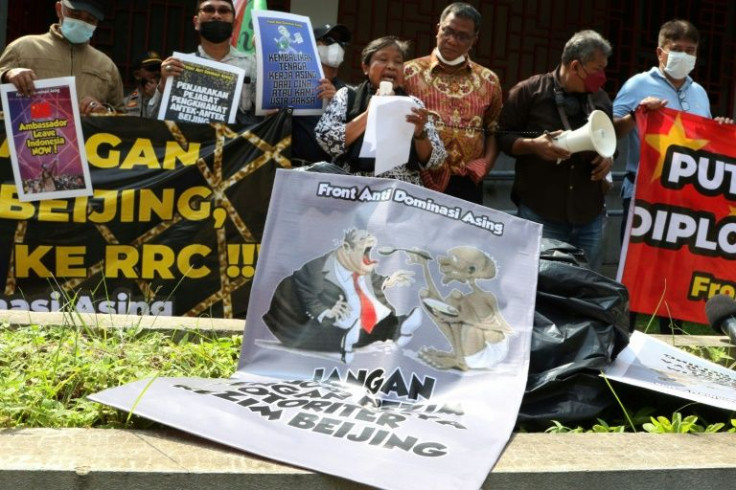China Launches Military Drills In Disputed South China Sea As Biden Heads For Asia Visit
KEY POINTS
- China claims a large part of the disputed waterway, on which major shipping lanes lie
- Beijing has also built artificial islands and airfields on some of its reefs and islets
- The country's activities in the South China Sea have raised concern in the region and in the U.S.
China on Thursday began military exercises in the disputed South China Sea, a move that coincides with U.S. President Joe Biden's visits to South Korea and Japan amid growing threat from Beijing.
The Maritime Safety Administration office in the southern island province of Hainan announced that the drills will continue through Monday and other aircraft and vessels will be prohibited from entering the area, the Associated Press reported. However, no other details were provided by Chinese authorities.
China claims a large part of the disputed waterway, on which major shipping lanes lie. Beijing has also built artificial islands and airfields on some of its reefs and islets. The country's activities in the South China Sea have raised concern in the region and in the U.S.
The U.S. has also carried out frequent naval operations in the South China Sea to assert navigational rights and freedoms in the contested waters, without prejudice to sovereignty disputes. However, China has protested against these moves, labeling them deliberate provocations that endanger peace and stability in the region.
Brunei, Malaysia, the Philippines and Taiwan also exercise overlapping claims in the South China Sea.
Biden left for South Korea and Japan on Thursday for dialogues to cement US leadership in Asia, which comes amid the Russia-Ukraine invasion, China's constant threat with alleged support to Russia and fears of a North Korean nuclear test at the same time. In the list of discussions with South Korean and Japanese officials, a large part is said to be China as the country continues to rise in commercial and military power undercutting Washington's dominance.
On Tuesday, Biden is scheduled to meet with fellow leaders of the Indo-Pacific strategic alliance known as the Quad, a group that includes Australia, India and Japan. The group holds the same concerns over China’s growing military capabilities. China, however, continues to condemn the dialogue between the four nations saying that their actions add to a possible impending threat in the region.
On Wednesday, Chinese Foreign Minister Wang Yi slammed Washington and Tokyo's support for Taiwan during a video call with Japanese Foreign Minister Yoshimasa Hayashi.
“What arouses attention and vigilance is the fact that, even before the American leader has set out for the meeting, the so-called joint Japan-U.S. anti-China rhetoric is already kicking up dust,” Wang said, according to China’s Foreign Ministry.

© Copyright IBTimes 2025. All rights reserved.





















